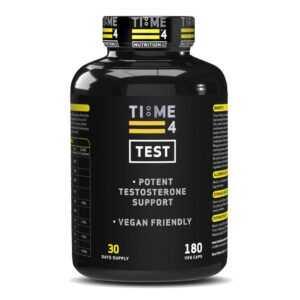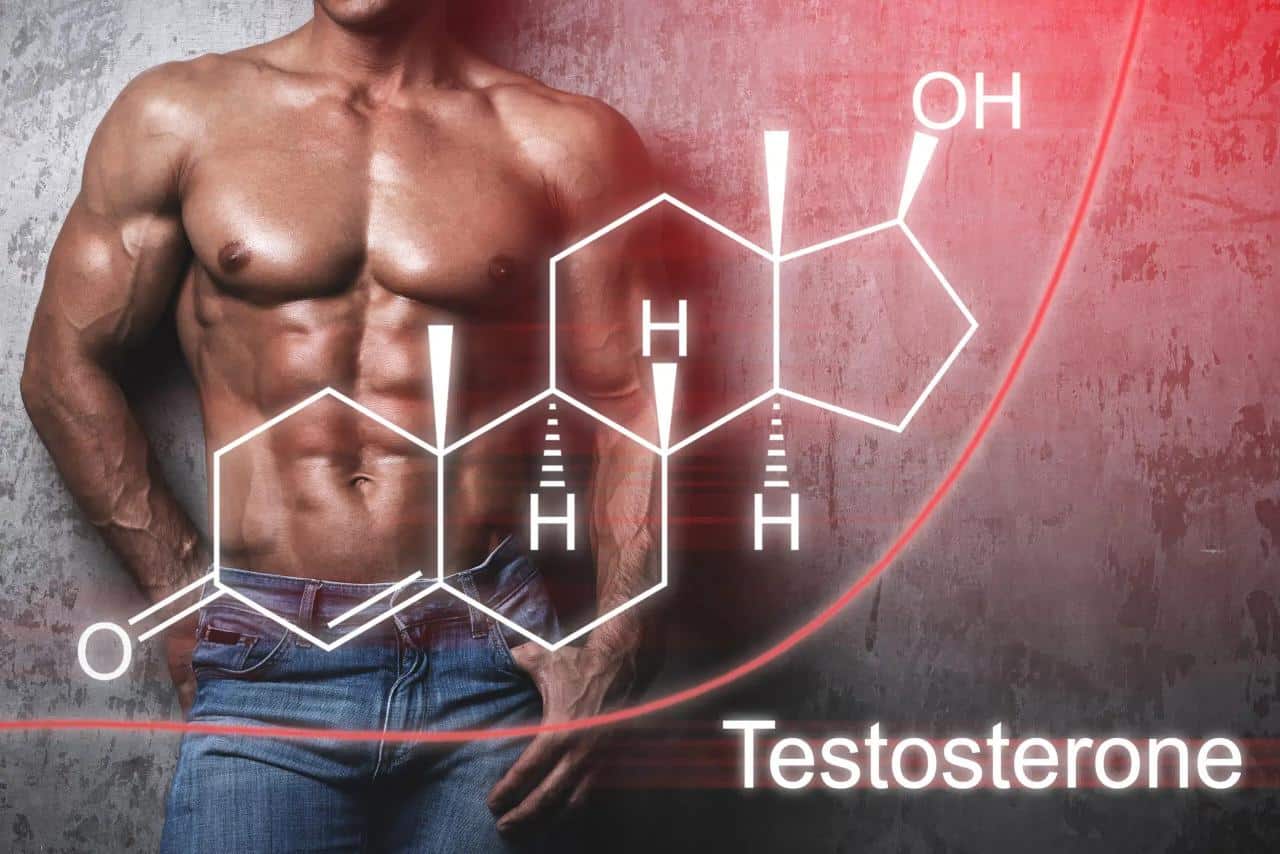What is the best Test Booster Supplement?
What is the best Test Booster Supplement?
What is the best Test Booster Supplement? – Think you know about Time 4 Test? Think again….
(Click on the Reference Numbers in Blue for More Info)
For some time now, there has been concern in the medical and scientific communities regarding the declining testosterone levels in men. This is due to the findings of a number of studies, which have shown a significant and steady decrease from the 1970s until the present time (1,2).
This decline appears to have been particularly rapid in the last two decades, as men’s testosterone levels have dropped 20% in 20 years, with an increasing number of younger men now suffering the effects of low testosterone (1).
The consequences of this go far beyond merely reducing the masculine appearance and behaviour of males, as it can have a significant negative impact on both the health and performance of those affected. Consequently, it is important that we understand how we can reduce the chances of developing low testosterone and what we can do to combat it. To do this, we need to understand the nature and function of testosterone and how it can be manipulated by natural means to achieve and maintain healthy levels.
What is Testosterone?
Testosterone is a powerful naturally occurring steroid hormone and the most important androgen (male sex hormone). It has a number of anabolic effects including directly increasing muscle mass and strength and stimulating the release of growth hormone.
It also plays an important role in health and well-being, as it contributes to bone density and strength, the production of red blood cells, reproductive health (sperm production), libido, heart health and cognitive function. Testosterone also helps us to maintain a healthy body composition, as it not only contributes to the development and maintenance of muscle, but also enhances fat metabolism to help us to stay leaner.
Testosterone in men and women
Testosterone is largely responsible for the sex differences in strength and muscle mass that occur at the onset of puberty, and for the development of the male secondary sex characteristics, such deepening of the voice and the growth of facial and body hair.
Although testosterone is the most important androgen, women naturally have a small amount (approximately one tenth of the level in men), which provides many of the same benefits, including the production of red blood cells, the maintenance of healthy levels of muscle mass and body fat, and bone density and strength. It also plays a role in sex drive, fertility, and the regulation of the menstrual cycle.
In males, approximately 95% of testosterone is produced in the testicles, with small amounts secreted from the adrenal glands, which are located just above the kidneys.
In women of childbearing age, roughly 25 percent of circulating testosterone comes from the ovaries, 25 percent comes from the adrenal glands, and the remaining 50 percent arises from conversion of testosterone precursors in other body sites.
Prior to puberty, there is no sex difference in circulating testosterone concentrations or athletic performance. However, from puberty onward a clear sex difference in athletic performance emerges as circulating testosterone concentrations rise in men due to testes producing 30 times more testosterone than prior to puberty. This results in circulating testosterone levels in males exceeding 15-fold that of women at any age.
There is a strong dose-response relationship between circulating testosterone and muscle mass and strength as well as circulating haemoglobin in both men and women, which accounts for sex differences in muscle mass, strength and endurance performance. The impact of testosterone levels on performance has been demonstrated by suppressing circulating testosterone levels in athletes, which results in a decrease in performance. Once testosterone levels return to normal, decrements in performance are reversed. (3).

How does Testosterone increase muscle mass?
The association between increased testosterone levels and increases in muscle mass is well acknowledged but how testosterone contributes to the development of muscle mass is less widely understood. In short, several mechanisms are involved: These include increasing neurotransmitters, which encourage tissue growth, interacting with specific genes which are involved in protein synthesis, and by increasing levels of the powerful anabolic substance, growth hormone.
What is the best Test Booster Supplement?: Does Testosterone affect behaviour?
While there is an understandable focus on the physical effects of testosterone, it is important to understand that it plays a role in certain behaviours, such as aggression and dominance, helps to drive competitiveness and boost self-esteem. Consequently, low testosterone may result in a loss of confidence and a lack of motivation. It can also reduce our ability to concentrate, cause feelings of sadness, sleep disturbances and a lack of energy.
What is the best Test Booster Supplement?: What controls the release of Testosterone?
The central nervous system controls testosterone levels by sending messages via hormones and other chemicals that are released into the bloodstream. In the brain, the hypothalamus communicates to the pituitary gland how much testosterone is needed, and this information is then relayed to the testes.
What is the best Test Booster Supplement?: How much Testosterone should we have?
The NHS, and most other healthcare experts, consider normal testosterone levels to be between 10 and 30 nmol/L in men and 0.7-2.8 nmol/L in women, although this may vary slightly depending on the lab doing the test. Levels lower than 10 nmol/L in males could be a sign of ongoing low testosterone levels.
Note: Testosterone levels are typically expressed either as nmol/L or ng/dL. Information originating from the USA tends to refer to testosterone levels in ng/dl. While in the UK the measurements are expressed in nmol/L. The conversion factor of ng/dL to nmol/L is 0.0346703. Therefore, a testosterone level of 300 ng/dL equates to 10.4 nmol/L
What is the best Test Booster Supplement?: How is Testosterone measured?
Testosterone is usually measured via a blood test. This is typically performed at around 8- 9am, as it this time when testosterone levels are at their highest.
Most of the testosterone in the bloodstream is bound to two proteins known as albumin and sex hormone-binding globulin (SHBG). Albumin is the main protein in blood plasma. It is produced by the liver and plays a role in many functions, including maintaining pressure in the blood vessels and transporting substances such as hormones in the blood.
Sex hormone binding globulin (SHBG) is also a protein synthesised by the liver. It binds tightly to testosterone and transports it in the blood in an inactive form.
Testosterone that is not attached to a protein is called ‘free testosterone’. This accounts for just 1-4 % of the total testosterone in a typical male’s bloodstream.
While both bound and free testosterone are present, it is only the free testosterone that is immediately accessible for use by the body because it can enter the cells unimpeded by attachment to SHBG or albumin.
Consequently, testosterone tests typically provide a measure of total testosterone, which comprises both attached and free testosterone, and a measure of free testosterone.
Here is an example of testosterone test results.
| TEST | PATIENT RESULT | NORMAL RANGE | UNITS |
|---|---|---|---|
| TOTAL TESTOSTERONE | 12.10 | 8.64-29 | nmol/L |
| SHBG | 36 | 18.3-54.1 | nmol/L |
| FREE TESTOSTERONE | 0.224 | 0.2-0.62 | nmol/L |
What is the best Test Booster Supplement?: Free Testosterone versus total Testosterone
If it is suspected that an individual is suffering from low testosterone, often a doctor will only test for total testosterone. In many cases, this is sufficient to make a diagnosis.
However, there are men who may be suffering from the typical symptoms of low testosterone but whose total testosterone test levels appear to be normal. This is because the symptoms of low testosterone may not only be caused by the total amount of testosterone in the blood, but also be due to a disproportionate amount of testosterone being bound and not readily accessible. Therefore, an individual’s level of free testosterone can be more effective for evaluating the symptoms of low testosterone than a measure of total testosterone.
Testosterone that is free or bound to albumin is considered ‘biologically active’. This is because testosterone has a weak bind to albumin and can easily become unbound. The sum of free testosterone and albumin bound testosterone is known as ‘bioavailable testosterone’. This is the portion of testosterone that is able to enter the cells and perform its many functions. Therefore, even if you have normal to high total testosterone levels, you may struggle to gain muscle if your bioavailable testosterone is low.
What is the best Test Booster Supplement?: What are the symptoms of low Testosterone?
In men, symptoms of low testosterone include:
- Loss of muscle mass and strength
- Decreased sense of well-being
- Depressed mood
- Fatigue
- Difficulties with concentration and memory
- Moodiness and irritability
- Low sex drive
- Erectile dysfunction
Other changes that may occur with low testosterone include:
- A decrease in haemoglobin and mild anaemia
- A decrease in body hair
- Thinning of the bones (osteoporosis)
- Increased body fat
- Breast development (gynecomastia)
- Infertility
Symptoms of low testosterone in women typically include:
- Fatigue and lethargic feelings
- Muscle weakness and/or loss of muscle mass
- Decreased or increased sex drive
- Decreased or increased satisfaction from sex
- Increased feelings of depression
It is important to note that any of the symptoms listed above may be the result of medical issues other than low testosterone. However, the presence of a number of them in combination can indicate an increased chance that low testosterone is the underlying cause of the issue/s being experienced.
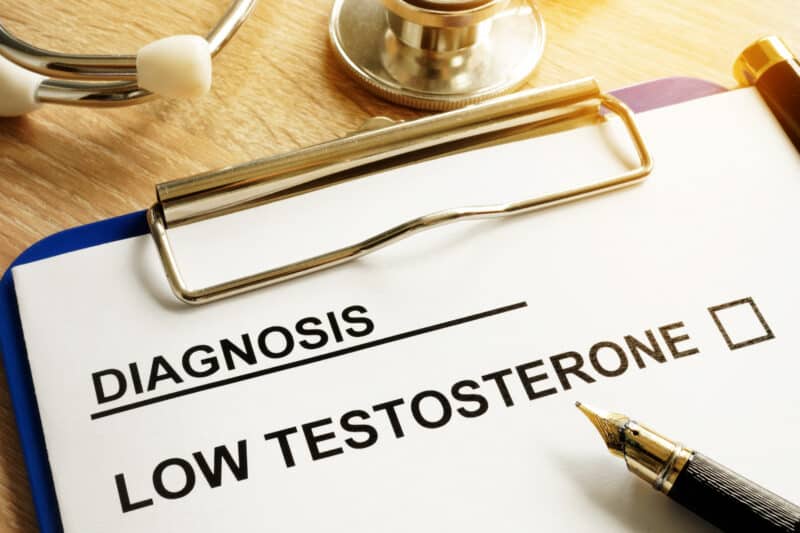
What is the best Test Booster Supplement?: What causes low Testosterone?
Low testosterone in males is known as hypogonadism. This is a condition in which the testes produce insufficient testosterone. It affects almost 40% of men aged 45 and older and may be due to a number of potential causes. These include:
- Injury (trauma, interrupted blood supply to the testes) or infection of the testes
- Chemotherapy for cancer
- Metabolic disorders such as haemochromatosis (too much iron in the body)
- Dysfunction or tumours of the pituitary gland
- Medications, including opioids, hormones used to treat prostate cancer, and steroids (such as prednisone)
- Acute (short-term) or chronic (long-term) illness
- Alcohol abuse
- Cirrhosis of the liver
- Chronic renal (kidney) failure
- HIV/AIDS
- Inflammatory conditions such as sarcoidosis (a condition that causes inflammation of the lungs and other organs)
- Kallman syndrome (abnormal development of the hypothalamus, a gland in the brain that controls many hormones)
- Klinefelter syndrome (a genetic condition in which a male is born with an extra copy of the X chromosome).
- High levels of the milk-producing hormone prolactin
- Obesity
- Extreme weight loss
- Uncontrolled type 2 diabetes mellitus
- Congenital defect (present at birth)
- Obstructive sleep apnoea
- Oestrogen excess (usually from an external or environmental source)
- Previous anabolic steroid abuse
- Severe primary hypothyroidism (low thyroid hormone production)
- Pubertal delay
- Head injury
- Radiation exposure
Issues that lead to low testosterone in women include:
- Deficient adrenal gland function
- Removal of the ovaries
- Oestrogen therapy
- Early menopause
What is the best Test Booster Supplement?: How does body fat lower Testosterone?
It is well acknowledged that testosterone (T) is positively correlated with lean mass and inversely correlated with fat mass in men, i.e., high levels of muscle are associated with higher levels of testosterone while high levels of body fat are associated with lower levels of testosterone.
For example, a study by Gates et al., (4) investigated the body composition and testosterone (T) levels of more than 800 men. The results of the study showed that T, calculated free T, and SHBG were inversely correlated with fat mass, weight, body mass index, waist/hip circumference, and waist-to-hip ratio. In short, the fatter an individual was, the lower their levels of testosterone.
Science is now beginning to explain the physiological mechanisms responsible for this phenomenon. The increase in adipose tissue is associated with an increase in the enzyme aromatase, which converts testosterone to oestradiol (a form of oestrogen). This leads to diminished testosterone levels that result in the increased storage of fat in the abdominal cavity (5). If this conversion occurs before testosterone can reach its receptors, the level of free testosterone in the blood declines while oestrogen levels rise.
What is the best Test Booster Supplement?: Do Testosterone levels decrease as we age?
Testosterone levels change throughout life: production surges during adolescence and peaks in the late teens or early 20s. Around the age of 30 to 40 years, there tends to be a decline of approximately 1-2% per year.
While traditionally it has been accepted that testosterone levels tend to decline naturally with advancing age, there is some evidence to suggest the decline in testosterone we assume is a natural consequence of ageing may not be due to ageing per se.
The results of a study by Sartorius et al., (6) found there no decrease in testosterone associated with age among men over 40 years who self-report very good or excellent health although obesity and ex-smoking status were associated with decrease in androgen levels. The authors concluded that these findings support the interpretation that the age-related decline in blood testosterone accompanying non-specific symptoms in older men may be due to accumulating age-related co-morbidities rather than a symptomatic androgen deficiency state. So, the take-home message here is the better our general health is, the less likely we are to suffer a decline in testosterone as we age.

What is the best Test Booster Supplement?: Does lifestyle affect Testosterone levels?
Numerous studies have demonstrated the negative influence of various aspects of our lifestyle on our testosterone levels, such as diet, activity levels, sleep, stress levels, alcohol and substance abuse, and stress. For example:
A study by Leproult and Van Cauter (7) found that testosterone levels of healthy young men decreased by 10%-15% after a week of sleep loss (5 hours per night) compared with their rested states.
Kumagai and colleagues (8) investigated the relationship between physical activity and testosterone levels in overweight and obese men. The results of the study showed that the most active subjects had significantly higher testosterone levels than less active subjects.
A review by Duca et al., (9) on substance abuse and testosterone levels in men found that alcohol, opioids and anabolic-androgenic steroids are capable of reducing testosterone production. Other substances such as nicotine, cannabis, may affect testicular function.
One study (10) found that just 6 weeks of moderate alcohol consumption equivalent to half a bottle of wine or two cans of lager per day, reduced testosterone levels in men by 6.8%.
Chronic stress is associated with a reduction in testosterone, primarily through actions of the hormone cortisol, which is released from the adrenal cortex during stressful situations. Research has shown that the administration of cortisol into the circulation will result directly in reduced blood testosterone levels (11). It does this by suppressing the release of testosterone at various stages of the production process including in the hypothalamus and in the testes.
What is the best Test Booster Supplement?: Can certain foods lower Testosterone levels?
While it is beyond the scope of this article to provide a finite account of the influence of food on testosterone levels, it is interesting to note that a range of foods and ingredients have been shown to lower testosterone levels. These include mint, liquorice, vegetable oils, flaxseed, processed foods, and nuts.
The potential testosterone lowering capability of certain foods can be quite dramatic. In one study, the consumption of just 7 grams of liquorice root per day for 1 week caused a 26% drop in testosterone levels (12).
What is the best Test Booster Supplement?: Does Soy decrease Testosterone levels?
When it comes to its effect on testosterone, perhaps the most controversial food is soy. There is evidence to suggest that regularly eating soy products such as tofu, soy milk, and miso may cause a drop in testosterone levels. For example, one study (13) found that the consumption of 56 g of pure soy protein powder per day for a period of 4 weeks was associated with a 19% in decrease testosterone in young men.
On the other hand, there is also evidence to suggest that soy has no effect. The results of a meta-analysis by Hamilton-Reeves et al., (14) showed that soy foods do not alter measures of bioavailable testosterone levels in men.
It seems that more research is needed to fully understand the influence of soy products on testosterone.
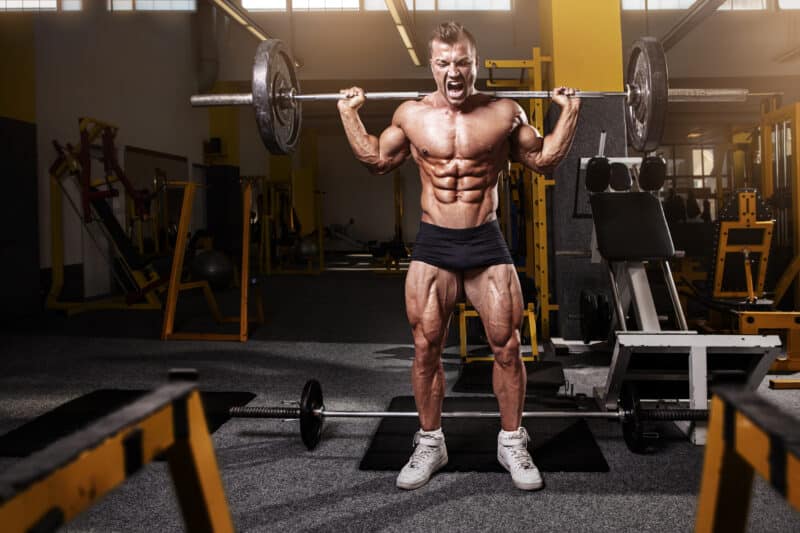
What is the best Test Booster Supplement?: What is the most effective form of exercise to increase Testosterone levels?
Current evidence suggests that heavy resistance training is the most effective form of exercise for producing both short-term and long-term increases in testosterone levels. For example, the results of a study by Andrada and colleagues (15) found that resistance training 3 times per week for a period of 4 weeks was related to increases in testosterone levels immediately post-workout and over time in males.
Findings on the testosterone response in women are less clear with both increases and no changes observed in response to a bout of heavy resistance exercise (16).
To maximise the testosterone increasing effect of resistance exercise, the National Strength and Conditioning Association suggest that a training programme should employ:
- Large muscle group exercises (e.g., deadlift, cleans, squats)
- Heavy resistances (85-95% of 1 RM)
- Moderate to a high volume of exercise achieved multiple sets, multiple exercises or both
- Short rest periods (30-60 seconds)
Cardiovascular training has also been shown to elicit increases in testosterone. For example, Hackney and colleagues (17) compared the free testosterone (FT) hormonal responses of high-intensity interval exercise (IE) to steady-state endurance exercise (SSE) in endurance trained males. IE session was repeated periods of 90-sec treadmill running at 100-110% maximal oxygen uptake (VO2max) and 90-sec active recovery at 40% VO2max for 42-47 min. The SSE session consisted of a continuous 45-min run at 60-65% VO2max.
The results showed that both IE and SSE produced an increase in FT, but IE produced the greatest response.
What is the best Test Booster Supplement?: Does to much exercise lower Testosterone levels?
Although exercise has been shown to increase testosterone levels, it is important not to overdo it, as overtraining has long been associated with a decrease in testosterone (18). For example, the findings of a study by Safarinejad et al., (19) showed that exercising at a moderate-intensity (approximately 60% (VO2max)) or high-intensity (approximately 80% VO2max) for 120 minutes, 5 times per week resulted in a reduction in both serum testosterone and free testosterone after a period of 12 weeks.
What is the best Test Booster Supplement?: Are there any natural substances that have been shown scientifically to increase testosterone levels?
The short answer is yes.
This is where Time 4 Test can be a valuable addition to your nutrition strategy, as it provides a potent combination of natural ingredients formulated to promote the maintenance of the body’s natural testosterone levels. These include Fenugreek , Rhodiola Rosea Ashwagandha , Magnesium Aspartate, Stinging Nettle Root, Tribulus Terrestris (95% saponins), Black Pepper (95% Piperine), Zinc Gluconate, Zinc Citrate, Vitamin B6, Boron Citrate, and Vitamin D3.
As we look at each of these ingredients and the science to support their use, you’ll begin to see why Time 4 Test is such a great product and how it may benefit you.
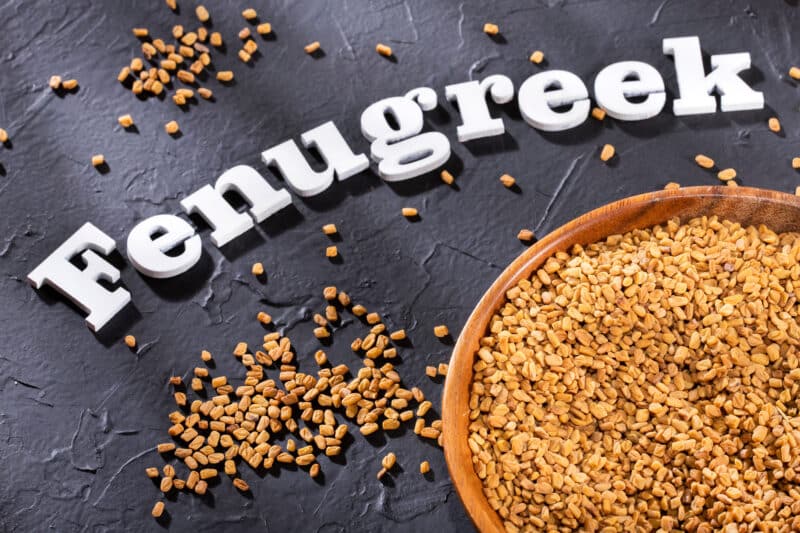
What is the best Test Booster Supplement? – What is Fenugreek?
Fenugreek is a herb similar to clover that is native to the Mediterranean region, southern Europe, and western Asia, and is grown and consumed around the world. The seeds, leaves, and other parts of the plant are used in cooking and traditional medicine for its anti-inflammatory, anti-diabetic, antiseptic, aphrodisiac properties and other health benefits. Supplementation with fenugreek has also been shown to increase testosterone levels.
Does Fenugreek increase Testosterone?
Anuj Maheshwari and colleagues (20) investigated the effects of a fenugreek supplement on free and total testosterone levels, sperm profile and morphology, sexual health, mood and mental alertness in 50 males over a period of 12 weeks. The results of the study showed free testosterone levels were improved up to 46% in 90% of the study population, while 85.4% of the study population showed improvements in sperm counts. The majority of the subjects enrolled in the study demonstrated improvements in mental alertness and mood. Furthermore, cardiovascular health and libido were significantly improved.
Similar results were obtained in a study by Rao et al., (21) which investigated the effects of a fenugreek supplement on the symptoms of possible androgen deficiency, sexual function and serum androgen concentrations in healthy aging males. The study was a double-blind, randomised, placebo-controlled trial involving 120 healthy men aged between 43 and 70 years of age. The results showed both total serum testosterone and free testosterone increased compared to placebo after 12 weeks of active treatment. In addition, there was a significant decrease in AMS (a measure of possible androgen deficiency symptoms) score over time between the active and placebo groups, and sexual function improved with no adverse side effects.
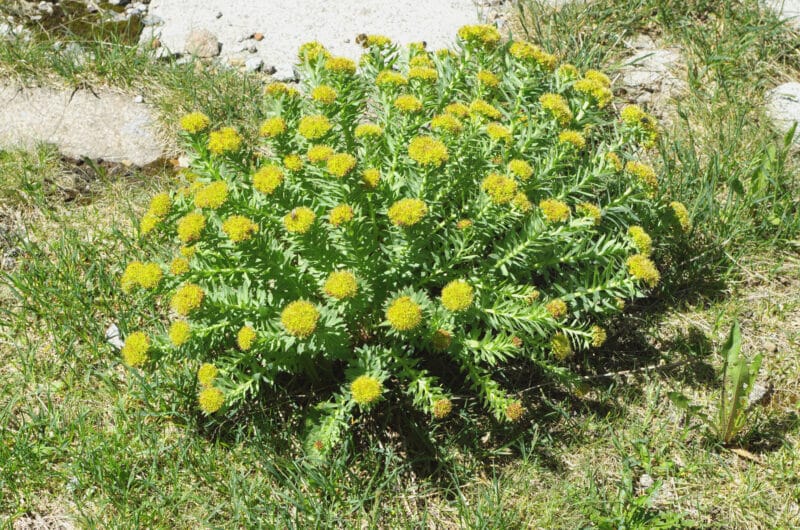
What is the best Test Booster Supplement? – What is Rhodiola Rosea?
Rhodiola Rosea is a herb found in the colder regions of Europe (including Britain), Asia, and North America. It is used in traditional medicine as an anti-fatigue agent and to prevent the effects of stress and has been shown to improve exercise performance and maintain post-exercise testosterone levels. Its root contains more than 140 active ingredients, with the two most potent being rosavin and salidroside. Rhodiola Rosea has long been known as an ‘adaptogen’, a natural substance that increases the body’s resistance to stress.
Does Rhodiola Rosea increase Testosterone?
The science suggests that it is via its ability to counteract the effects of chronic stress that Rhodiola Rosea can help to maintain testosterone levels.
Wang et al., (22) investigated the effects on the hypothalamic-pituitary-gonad axis of male rats undergoing negative psychological stress in experimental navigation and intensive exercise. The hypothalamic-pituitary-gonadal axis (HPG axis) refers to the connection between the hypothalamus, pituitary gland, and gonads (testes), which is responsible for the production and release of testosterone. Rats were randomized into 3 groups: non-stress control (NC) training control (TC) and salidroside treatment (ST).
The results of the study showed that T level was significantly lower in the TC than in the NC group, but showed no significant difference between the ST and NC groups. In other words, those rats taking salidroside maintained their testosterone levels while those not taking salidroside suffered a significant reduction in T levels when experiencing the same levels of stress. The authors concluded that negative psychological stress and intensive exercise can significantly suppress the function of the HPG axis in rats, which salidroside can protect against.
Olsson and colleagues (23) investigated the extract of Rhodiola Rosea L. in the treatment of individuals suffering from stress-related fatigue. The study took the form of a randomised, double-blind, placebo-controlled study. A total of 60 individuals were randomised into two groups, which received either a daily dose of SHR-5 extract or a placebo. The results showed that Rhodiola Rosea not only increases mental performance, particularly the ability to concentrate, but also decreases cortisol response to stress.
Note: Time 4 Test contains Rhodiola Rosea, which is standardised for salidroside rather than rosavin, as this form has been shown to exert the greatest influence on testosterone levels (22).
Interestingly, Rhodiola Rosea may also help to maintain testosterone levels via its ability to reduce body fat, particularly abdominal fat through its stimulation of an individual’s metabolism and its ability to normalise cortisol levels (24). This may reduce an individual’s cravings for unhealthy ‘comfort foods’ and reduce fat-accumulation that is associated with elevated cortisol levels, particularly abdominal fat.
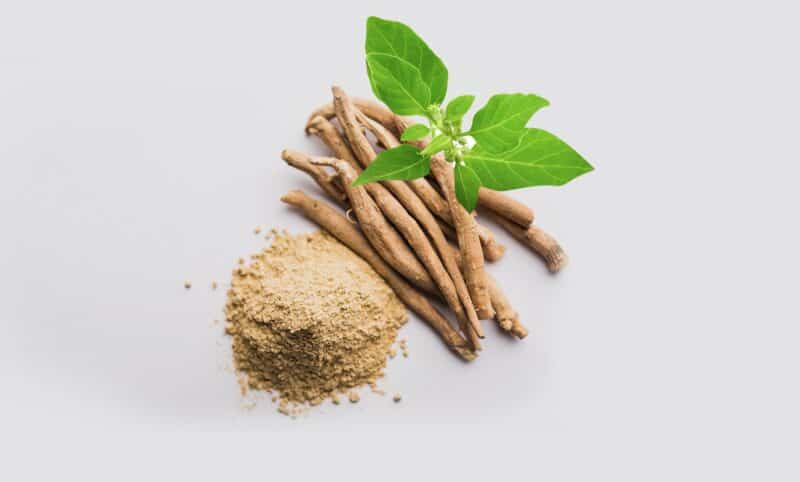
What is the best Test Booster Supplement? – What is Ashwagandha?
Ashwagandha (withania somnifera) is a herb native to India, which has been used in traditional medicine for many years to reduce stress and anxiety, promote youthful vigour, enhance muscle strength and endurance, and improve overall health.
Does Ashwagandha increase Testosterone?
Lopresti and colleagues (25) investigated the effects of Ashwagandha on steroid hormones in aging men. Overweight men aged 40-70 years were given a placebo or an ashwagandha extract for 8 weeks. The results of the study showed Ashwagandha intake was associated with an 18% greater increase in DHEA-S (a steroid hormone secreted which is a precursor of testosterone) and 14.7% greater increase in testosterone compared to the placebo.
In contrast to the study by Lopresti and colleagues, Wankhede et al., (26) examined the effects of ashwagandha consumption on muscle mass and strength in healthy young men engaged in resistance training. In this randomized, double-blind, placebo-controlled clinical study, male subjects (18-50 years old) were given either a placebo or 300mg of ashwagandha root extract twice daily. Both groups of subjects underwent resistance training for 8 weeks. The results of the study showed that compared to the placebo subjects, the group treated with ashwagandha had significantly greater increases in testosterone, and muscle strength and size. The subjects receiving ashwagandha also had significantly greater reduction of exercise-induced muscle damage and a significantly greater decrease in body fat.
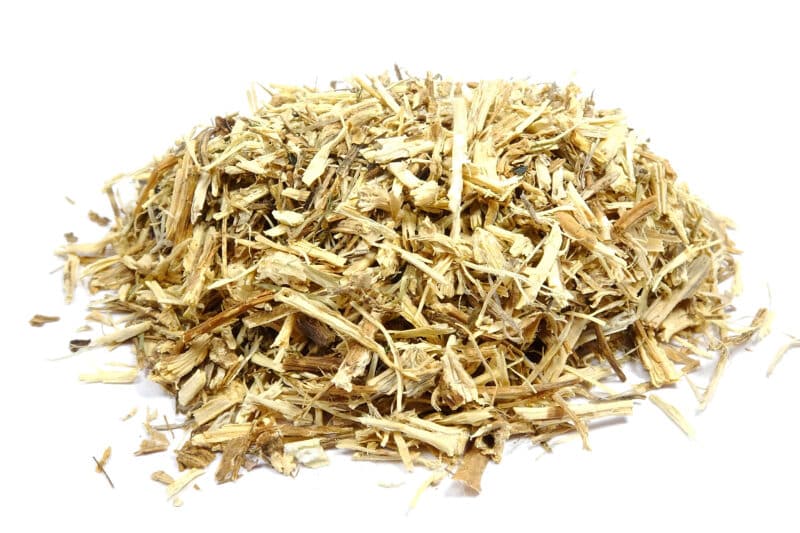
What is the best Test Booster Supplement? – What is Stinging Nettle Root (Urtica Dioica)?
Stinging nettle is a plant native to North America, Europe and Africa, which has been used as a herbal remedy for thousands of years for its antiviral, antimicrobial, antiulcer, antioxidant, and analgesic effects. Both its leaves and root provide a wide variety of nutrients, including vitamins, minerals, fats, amino acids, pigments and polyphenols, many of which are powerful antioxidants.
Does Stinging Nettle Root increase Testosterone?
Stinging nettle root influences testosterone levels in two ways: Firstly, it contains substances known as ligans. These bind to sex hormone binding globulin (SHBG), which reduces the amount of SHBG that can bind testosterone thereby increasing the amount available testosterone for use by the body. This has been demonstrated by a number of studies.
For example, Schöttner et al., (27) found that all lignans except (-)-pinoresinol developed a binding affinity to SHBG with the affinity of (-)-3,4-divanillyltetrahydrofuran being outstandingly high.
Gansser and Spiteller (28) achieved similar results when investigating the ability of stinging nettle derived lignans on SHGB. The lignan secoisolariciresinol (5), as well as a mixture of a number of others, were shown to reduce binding activity of human SHBG.
There is also evidence that stinging nettle blocks the conversion of testosterone into oestrogen by the enzyme aromatase. Thereby, increasing testosterone levels. Various studies have shown that preventing aromatisation can be as effective for treating low testosterone as testosterone therapy. Leder and colleagues (29) investigated the ability of an orally administered aromatase inhibitor to increase testosterone production in 37 elderly men (aged 62-74 yr) in comparison to a placebo over a 12week period. The results of the study showed bioavailable and total testosterone levels increased while serum oestradiol levels decreased with the treatment. The authors concluded aromatase inhibition increases serum bioavailable and total testosterone levels to the youthful normal range in older men with mild hypogonadism, while serum oestradiol levels decrease modestly but remain within the normal male range.
Another study by Gansser and Spiteller (30) showed that the inhibitory effects on aromatase could be demonstrated for a variety of compounds derived from stinging nettle.
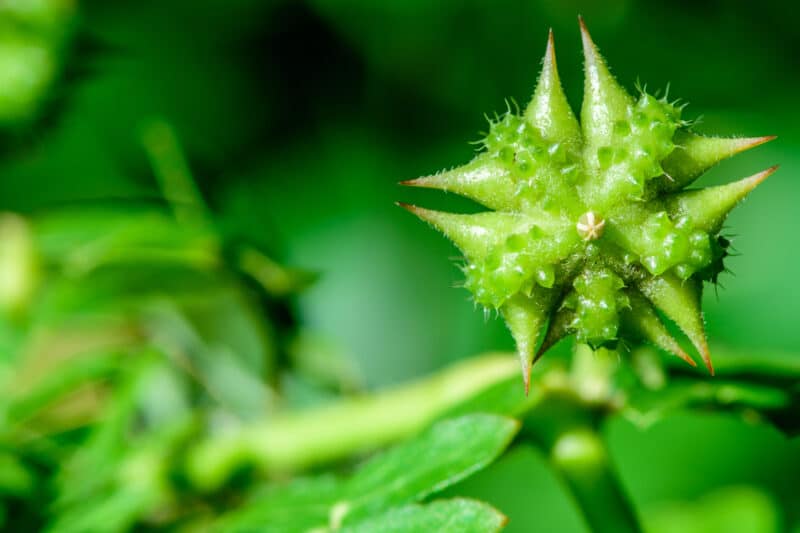
What is the best Test Booster Supplement? – What is Tribulus Terrestris?
Tribulus is a plant that is found in southern Europe, Southern Asia, Africa and Australia, where it is used in traditional medicines to enhance libido, keep the urinary tract healthy, reduce swelling and promote general health. It is also commonly used as a key ingredient in natural products aimed at boosting testosterone.
Does Tribulus Terrestris increase Testosterone?
GamalEl Din and colleagues (31) investigated the efficacy and safety profiles of Tribulus terrestris in aging males with partial androgen deficiency. Thirty-five patients (group A) received Tribulus terrestris three times daily for 3 months and the other 35 patients (group B) received placebo. The results showed significant elevations in the means of total testosterone for the treatment group.
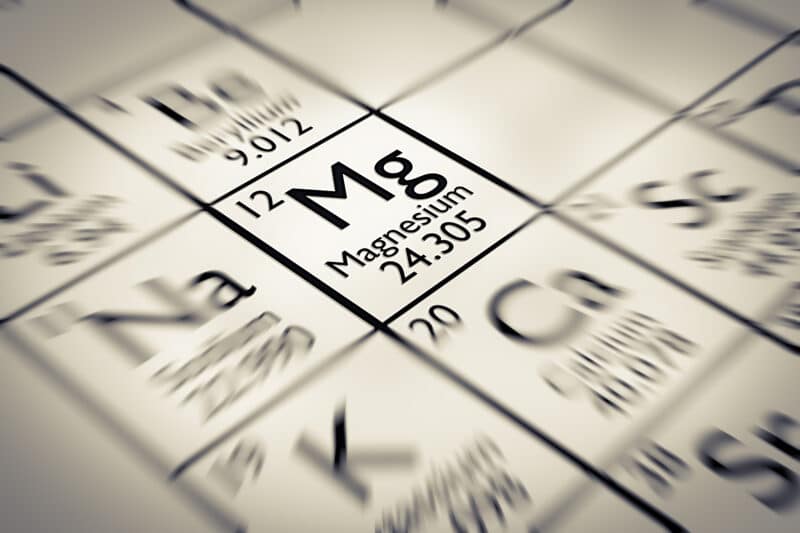
What is the best Test Booster Supplement? – What is Magnesium?
Magnesium is an essential mineral found in all human tissues, especially bone. It is involved in over 300 enzyme reactions and over 600 cellular reactions. These include the replication of DNA, the secretion of parathyroid hormone, which controls bone calcium levels, the function of muscle tissue and the nervous system, and energy production. It also contributes to protein synthesis, testosterone production, electrolyte balance, psychological function and the reduction of tiredness and fatigue and is essential for the conversion of vitamin D into its active form.
Does Magnesium increase Testosterone?
Maggio and colleagues (32) investigated the association between magnesium intake and testosterone and insulin-like growth factor in 399 men aged ≥65-years. The results of the study showed magnesium levels are strongly and independently associated with the levels of the anabolic hormones testosterone and IGF-1. The authors concluded that results help to demonstrate the importance of ensuring a sufficient intake of magnesium to maintain testosterone levels.
Cinar et al., (33) assessed the effects of 4 weeks of magnesium supplementation and exercise on the free and total plasma testosterone levels of sportsmen and sedentary controls at rest and after exhaustion. The study comprised three groups: Group 1-sedentary controls supplemented with 10 mg magnesium per kilogram body weight. Group 2-tae kwon do athletes training 90-120 min/day supplemented with 10 mg magnesium per kilogram body weight. Group 3-tae kwon do athletes practicing 90-120 min/day receiving no magnesium supplements. The results show that supplementation with magnesium increases free and total testosterone values in both sedentary individuals and athletes, with the increases being higher in those who exercise than in sedentary individuals.
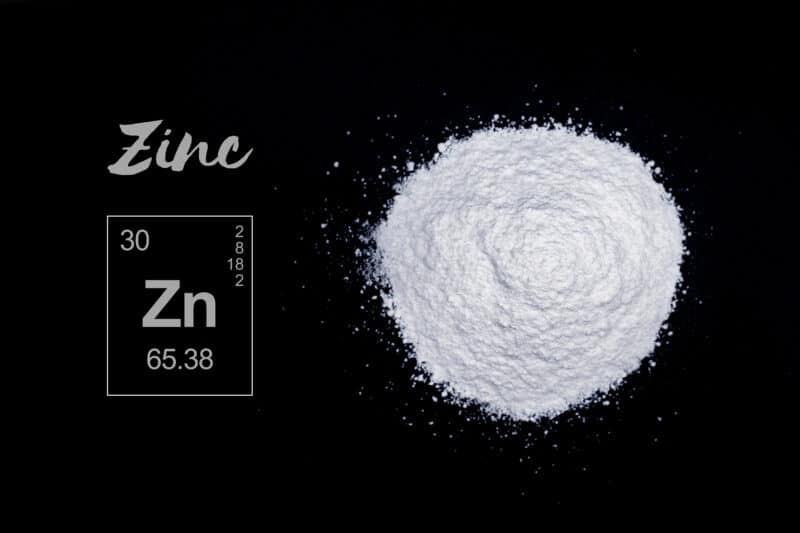
What is the best Test Booster Supplement? – What is Zinc?
Zinc is a naturally occurring mineral. It plays an important role in the growth, development and maintenance of healthy of body tissues, a strong immune system, the metabolism of fats, proteins, and carbohydrates, and the maintenance of healthy testosterone levels.
Does Zinc increase Testosterone?
Zinc deficiency is prevalent throughout the world, with moderate and severe deficiency being associated with reduced testosterone levels in men (34).
Prasad et al., (34) investigated the relationship between zinc concentrations and testosterone levels in 40 apparently healthy men aged 20 to 80 years. The results showed that serum testosterone concentrations were significantly correlated with cellular zinc concentrations. Dietary zinc restriction in normal young men was associated with a significant decrease in serum testosterone concentrations after 20 weeks of zinc restriction, while zinc supplementation of marginally zinc-deficient normal elderly men for six months resulted in an increase in serum testosterone.
Women suffering from low testosterone can also benefit from zinc supplementation. Mazaheri Nia and colleagues (35) investigated the effect of zinc supplementation on testosterone levels in postmenopausal women. This randomized clinical trial was performed on 116 postmenopausal women with serum zinc levels below 62, who were randomly divided into two groups: intervention and control. The results showed that zinc supplementation in the intervention group, resulted in a significant increase in testosterone levels compared to the control group.
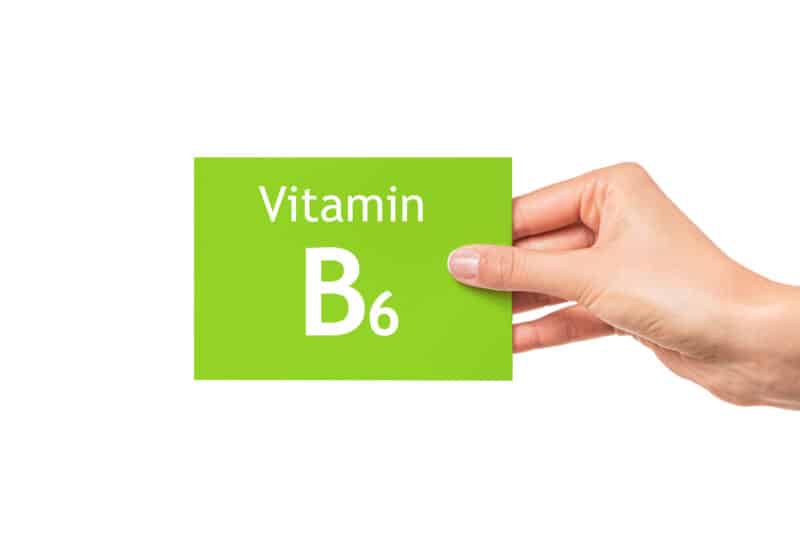
What is the best Test Booster Supplement? – What is Vitamin B6?
Vitamin B6 is a water-soluble vitamin, which plays an important role in energy production, the immune system, the metabolism of protein and glycogen, regulation of hormonal activity including testosterone, function of the nervous system, skin health, formation of red blood cells and the metabolism and transport of iron. It also contributes to normal psychological function, the reduction of tiredness and fatigue, and normal homocysteine levels. As vitamin B6 is water soluble, your body is not able to store it; therefore, it must be consumed daily.
Does Vitamin B6 increase Testosterone?
The importance of vitamin B6 for normal testosterone levels is exemplified by the findings of a study by Symes et al., (36), which showed that consuming a vitamin B6 depleted diet for just 4 weeks caused a significant reduction in testosterone levels. The authors concluded that the vitamin B6 deficient subjects had either a reduced rate of testosterone synthesis or an increased rate of metabolic clearance compared with vitamin B6 supplemented controls.
Combining Zinc, Magnesium and Vitamin B6: What does the science say?
It is not by chance that T4 Test contains zinc, magnesium and vitamin B6. This combination has been shown to be effective in enhancing testosterone levels. A study by Brilla and Conte (37) found that 8 weeks of supplementation with a zinc, magnesium and vitamin B6 increased free testosterone by 33.5% and insulin-like growth factor (IGF1) by 3.6% in comparison to a placebo. It also improved muscle strength and functional power.
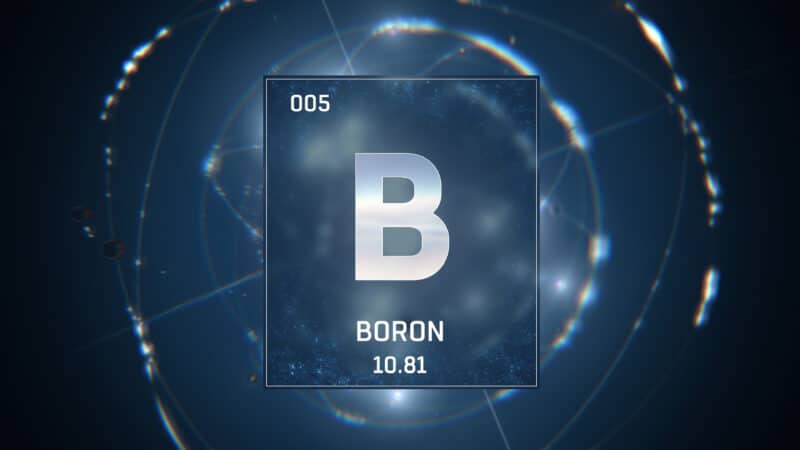
What is the best Test Booster Supplement? – What is Boron?
Boron is a mineral that is found in food, such as nuts, and in the environment. It plays an important role in the creation and balance of sex hormones (oestrogen and testosterone), and has been shown to increase levels of free testosterone in the body. It also plays an important role in the growth and maintenance of bone, wound healing, the metabolism of vitamin D and magnesium, maintaining antioxidant levels, and improves the brain’s electrical activity and cognitive performance.
Does Boron increase Testosterone?
Naghii and colleagues (38) investigated the effects of boron supplementation on the testosterone levels of healthy males. The results of the study showed that those subjects receiving a daily boron supplement of 10 mg for a period of 7 days achieved a 28.3% increase in their free testosterone. This may be due to the decrease in SHBG observed. In addition to an increase in testosterone, boron supplementation was also associated with a decrease in oestrogen of 39%.
The hormone enhancing effects of boron have also been shown to benefit women. Nielsen et al., (39) reported that dietary boron supplementation in postmenopausal women, who were previously on a low-boron diet, significantly increased their serum testosterone and oestradiol levels.
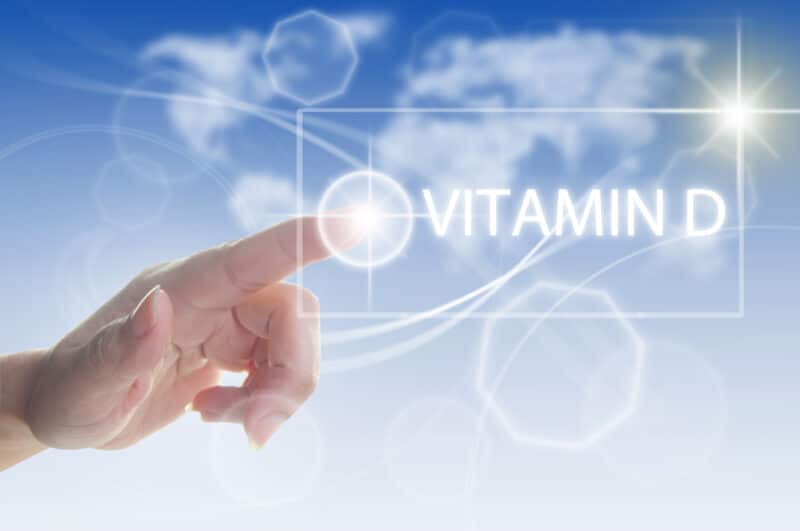
What is the best Test Booster Supplement? – What is Vitamin D?
Vitamin D is a fat-soluble vitamin, which plays an essential role in many functions of the body. These include bone health and growth, calcium absorption, immunity, the reduction of inflammation, muscle growth and repair, and the regulation of testosterone levels.
Does Vitamin D increase Testosterone?
The association between vitamin D and testosterone levels is still the subject of debate. To further understand the nature of this relationship, Wentz and colleagues (40) conducted a study to identify any significant correlations between vitamin D and testosterone concentrations in male soldiers. The results showed that serum vitamin D concentrations were a predictor of total testosterone in vitamin D deficient subjects. The authors concluded that these data indicate that deficient vitamin D concentrations may inhibit testosterone production and potentially limit human performance. They noted that the operational stress of military training has been shown to suppress testosterone concentrations in healthy men, causing muscle catabolism and fatigue, symptoms also characteristic of vitamin D deficiency. The authors advice that as more than half of male soldiers had insufficient vitamin D status in a southern latitude, measuring vitamin D concentrations in collaboration with testosterone assessments may be warranted.
While studies such as that Wentz and colleagues have helped to demonstrate the relationship between vitamin D and testosterone, can supplementation with vitamin D address low levels of testosterone? To answer this question, Pilz and colleagues (41) investigated the effects of vitamin D supplementation on testosterone levels in men. Participants received either 83 μg (3,332 IU) of vitamin D daily for 1 year or a placebo. Initial vitamin D concentrations were in the deficiency range and testosterone values were at the lower end of the reference range in both groups. The results showed that circulating vitamin D, total testosterone levels, bioactive testosterone and free testosterone levels all increased significantly in the vitamin D supplemented group. By contrast, there was no significant change in any testosterone measure in the placebo group.
Note: Although vitamin D is produced by the body in response to exposure to sunlight and is found in various foods such as fatty fish, cheese, egg yolks and fortified foods, getting sufficient amounts is difficult. Consequently, low vitamin D levels are found in significant numbers of all population groups in the UK. In winter, 30-40% of all age groups in the general population are classed as vitamin D deficient. This figure has been shown to be as high as 93% in black and ethnic minority populations. Even towards the end of summer, 8% of adults and 13% of adolescents remain deficient. In addition, the level of vitamin D typically classified as ‘sufficient’ is below that which is associated with an increase in testosterone in the study by Pilz (41) and those considered optimal for athletic performance. To learn more about vitamin D click here.
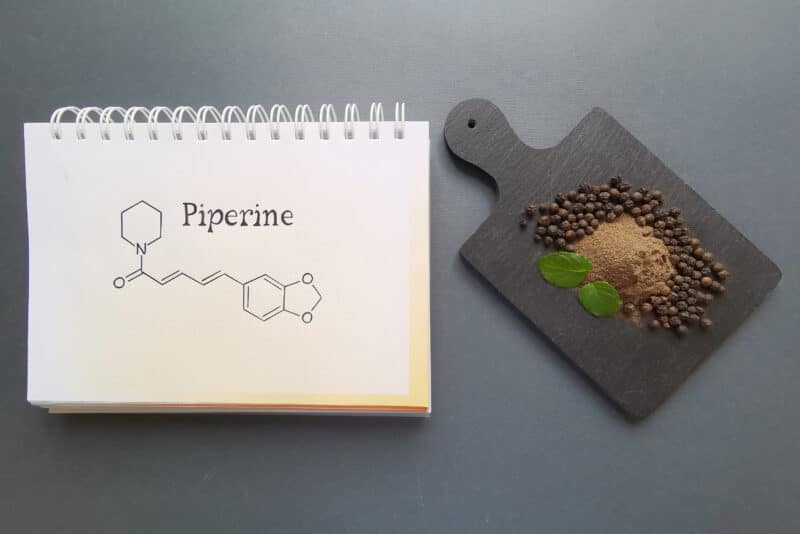
What is the best Test Booster Supplement? – What is Black Pepper (95% Piperine)
Piperine is a substance derived from black pepper. It has a long history of use in some types of traditional medicine, where its primary role is to enhance the bioavailability of other compounds, allowing them to be more easily absorbed by the body. This helps to ensure you get the maximum benefit from the product. For example, one study found that piperine boosts the absorption of curcumin (main constituent of turmeric powder) by up to 2000% (42).
What is the best Test Booster Supplement? – Conclusion
The scientific evidence clearly shows that testosterone levels in men are declining rapidly, leading to a range of health problems and decrease in many aspects of performance. Understanding what can lower our testosterone levels, provides us with an indication of how we can prevent or reduce the magnitude of any reduction. This includes consuming a well-balanced diet, maintaining a healthy body weight, getting sufficient sleep, avoiding excessive use of alcohol and drugs, engaging in an appropriate amount of moderate to high intensity exercise, and minimising stress levels. Time 4 Test can also play a valuable role in your testosterone maintenance strategy. This high strength carefully selected range of natural substances work synergistically to support the body’s natural testosterone levels by employing various mechanisms of action: While some such, as Ashwagandha directly increase testosterone production, others, such as stinging nettle root, reduce binding with SHBG to increase the levels of free testosterone and reduce the aromatisation of testosterone to oestrogen. It is this multifaceted approach to natural testosterone support that makes Time 4 test such an effective product.
